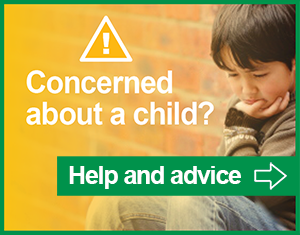SEND in the Early Help Process
When an additional need is identified for a child or young person, whether social, emotional, developmental or educational, an Early Help Assessment - Signs of well-being and Success (EHA) can be started to gather information. The emphasis is on assessing all aspects of a child or young person’s strengths, needs and circumstances, developing a plan to meet identified needs and reviewing progress systematically.
SEND support is embedded within the Early Help process. The EHA will be essential for:
- SENCOs following the ‘Graduated Response’ outlined in the Special Educational Needs and Disabilities Code of Practice (DfE 2015)
- Recording evidence of high quality teaching and SEN support in schools and settings using the information and advice set out in Bands 1 and 2 of the Cumbria SEND Handbook https://fid.cumberland.gov.uk/kb5/cumberland/directory/advice.page?id=mIP9J0iAfbY
If, following the assess-plan-do-review process, the setting requires support from the Learning Improvement Service or the Inclusion Service e.g. Early Years Area SENCO, Specialist Advisory Teacher or Educational Psychologist to meet the needs of the child or young person then the following should be undertaken:
- fully complete the EHA
- decide on one service to request. If additional services are necessary they will be referred to by this original agency
- gain written parent/carer consent;
In Cumberland
For Educational Psychology and/or Specialist Advisory Teaching (excluding Early Years) please return securely via Egress to your local Inclusion Service as follows:
For all requests for Early Years Area SENCO/Early Years SAT please return securely via Egress to LIS Business Support colleagues as follows:
In Westmorland and Furness
For Educational Psychology and/or Specialist Advisory Teaching (excluding Early Years) please return securely via Egress to your local Inclusion Service as follows:
For PVI requests for Area SENCO/EYSAT in Westmorland and Furness, please return securely via Egress to LIS Business Support colleagues as follows:
For School Early Years EHA requests (Area SENCO/EYSAT) please send via the Early Years Returns folder on the School Portal.
This must then be registered with the Early Help Team at: Cumberland early.help@cumberland.gov.uk or Westmorland and Furness early.help@westmorlandandfurness.gov.uk
PLEASE NOTE - when a child is open on a Child in Need Plan, Child Protection Plan or a Child Looked After Plan and an Early Help Assessment is being initiated for SEND purposes you do not register the Early Help Assessment. If you are unsure if you should register the Early Help Assessment, please contact your Area Early Help Officer who will advise you accordingly. Their details can be found here
- Please note that if you wish to refer to Health then you will need to access the relevant Health referral documentation Children's Physical Health & Development Team - Request for Assessment
- The Early Help should be closed when an EHCP is issued or when the external professional advice comes to an end. However if there are wider social issues the Early Help Assessment will need to remain open to address those alongside the EHCP. Both can be reviewed in the same review meeting.
If a review of interventions indicates a need for statutory assessment then a request for an Education Health and Care Assessment should be made using the specific box on the form. This requires additional parental permission and supporting evidence. Guidance regarding supporting evidence can be found in the Cumbria SEND Handbook https://fid.cumberland.gov.uk/kb5/cumberland/directory/advice.page?id=mIP9J0iAfbY
Completion of an EHA is part of a continuing process to assess and meet the needs of children and young people. It is not a one-off application form for additional support. It is a record of a continuing process.
In some cases where the need is a Special Educational Need and or Disability (SEND), the assessment and review may lead to a request for assessment for an Education, Health and Care Plan but equally may meet the needs of children and young people on its own (taken from the review page of the EHA). It is acknowledged that cases at Social Care Early Help are often closed after an initial assessment and short episode of intervention.
Children open at SEND Early Help often need extended assessments and monitoring of intervention before they are re-assessed to see if support has helped. This is a cyclical process of assess-plan-do-review process which forms part of the criteria schools and settings need to follow before requesting an EHCP (a Graduated Response). It may be that the child needs assessment and intervention by more than one specialist, for example Specialist Advisory Teacher/Educational Psychologist which can also take time. It may, therefore, be that an external specialist deems it necessary to keep the EH open whilst these extended assessments and monitoring of interventions take place. This contrasts with the Social Care cases that might be closed earlier.
It is also important to note that the external specialists do not register the Early Help Assessments – this is usually done by the school or setting. However, those professionals are able to negotiate with the setting when it is best to close the Early Help – it is important that all involved with the process are made clear about when to register and close cases.
